Food poisoning strikes millions of Americans every year, often from sources we’d never suspect. While we worry about raw chicken and expired milk, other common foods lurking in our kitchens might be the real culprits.
These everyday items can harbor bacteria, toxins, or allergens that our bodies struggle to handle.
1. Raw Sprouts: Bacteria Playground
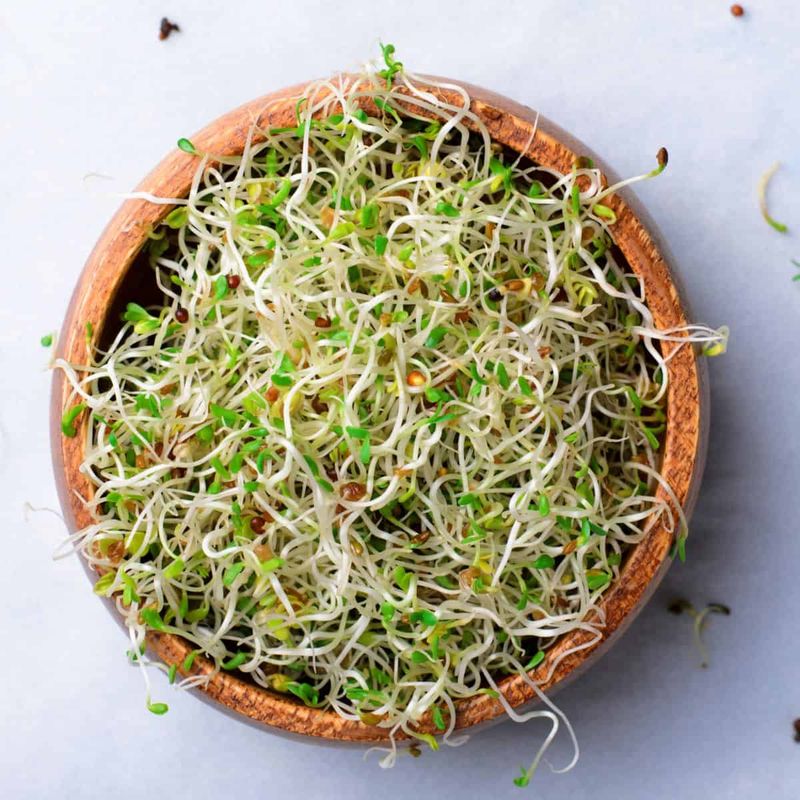
Alfalfa and bean sprouts create the perfect storm for bacterial growth. Their warm, humid growing conditions allow salmonella and E. coli to flourish unchecked.
Washing won’t eliminate these microscopic invaders completely. Always cook sprouts thoroughly.
2. Undercooked Eggs: Salmonella Central
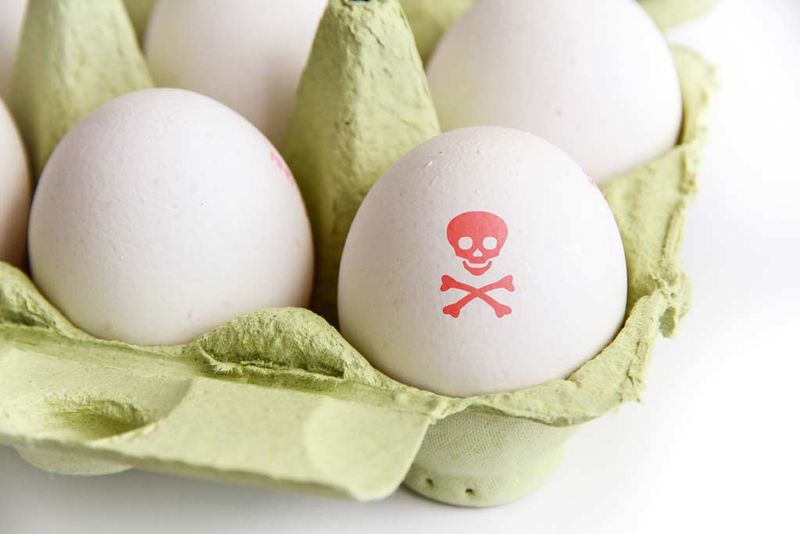
Runny yolks might make Instagram-worthy brunch photos, but they’re also prime real estate for salmonella. The bacteria lurks inside even clean, uncracked eggs from healthy-looking hens.
Cook eggs until whites and yolks are firm. Skip licking the cookie dough spoon too.
3. Pre-Cut Melon: Hidden Health Hazard
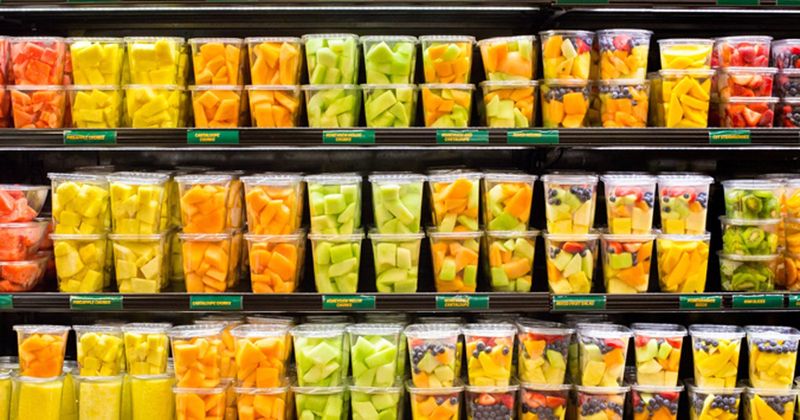
That convenient container of pre-cut watermelon might save time but could cost your health. Bacteria on the knife transfers from the rind to the juicy flesh during cutting.
Once sliced, melon provides the perfect moist environment for microbes to multiply.
4. Leafy Greens: Not Always Clean Eating
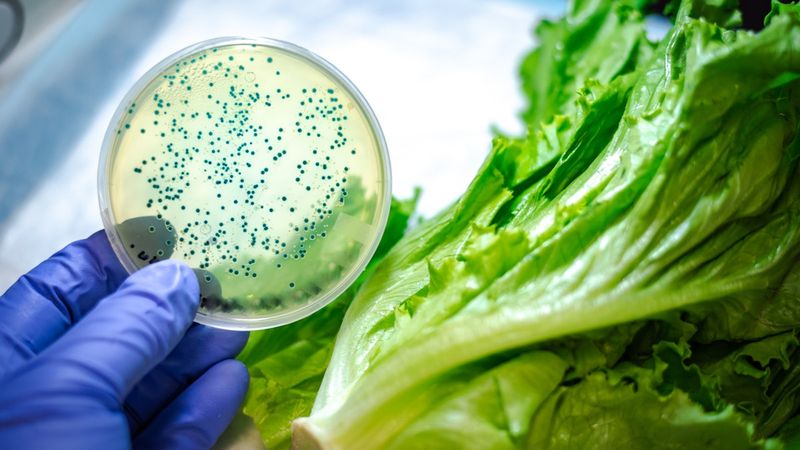
Kale and spinach might be nutritional powerhouses, but they’re repeatedly linked to foodborne illness outbreaks. Their crinkly surfaces create countless hiding spots for harmful bacteria.
Farm contamination from irrigation water or animal waste can stick around despite washing.
5. Rice Left Out Too Long: Bacillus Cereus Breeding Ground
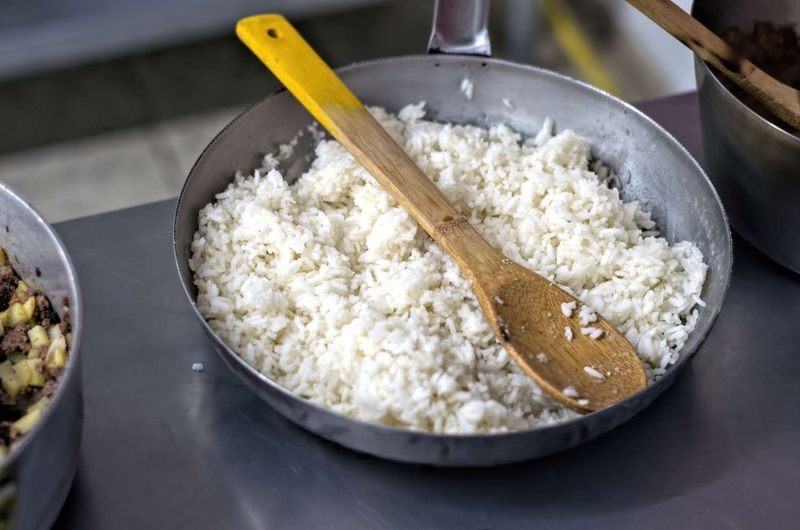
Yesterday’s forgotten takeout rice could be tomorrow’s stomach nightmare. Bacillus cereus spores survive cooking and germinate when rice sits at room temperature.
The bacteria produce toxins causing violent vomiting or diarrhea. Refrigerate leftover rice within one hour.
6. Unwashed Berries: Pesticide Packages
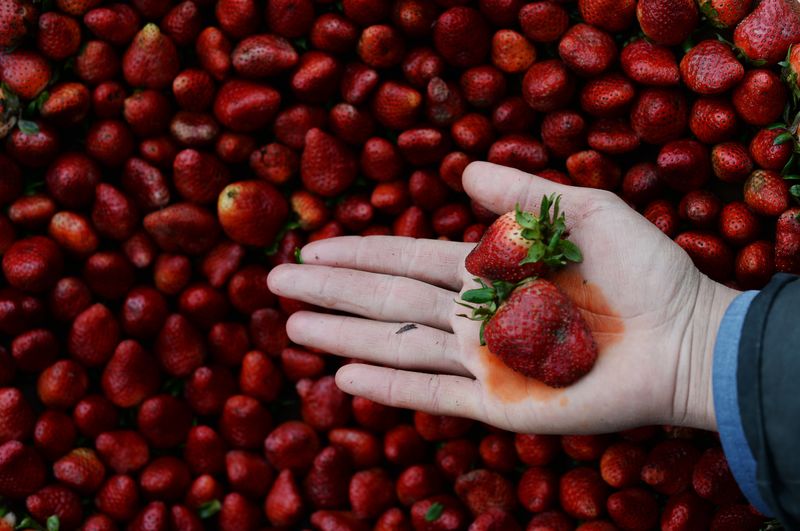
Those gorgeous strawberries might be hiding more than sweet flavor. Berries consistently top the “dirty dozen” list of pesticide-contaminated produce, with some harboring residues from up to 23 different chemicals!
Their delicate skin absorbs pesticides easily, and their nooks trap dirt.
7. Raw Flour: Surprising Salmonella Source
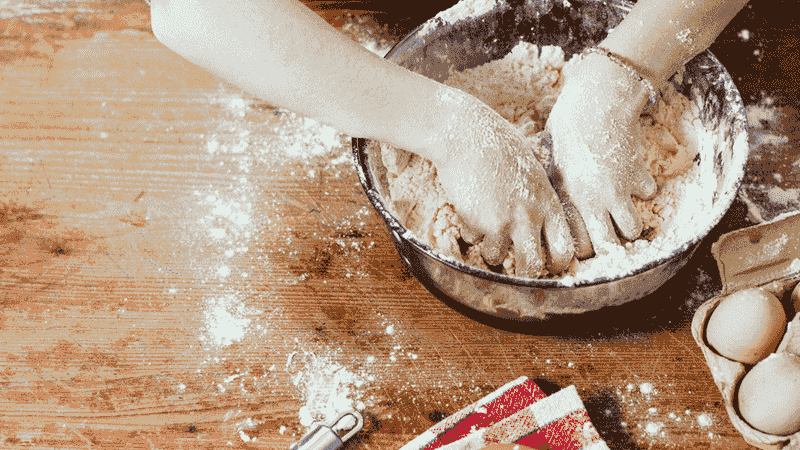
Flour seems innocent enough, but this powdery pantry staple is actually an uncooked agricultural product. E. coli outbreaks have been traced back to contaminated flour that never underwent a kill step.
Never taste raw cookie dough or cake batter.
8. Unpasteurized Juice: Bacteria Bonanza

That fresh-squeezed orange juice at the farmers market might seem healthier, but without pasteurization, it’s a microbiological gamble.
Bacteria from the fruit’s skin easily transfers to the juice during pressing.
Children, elderly, and immunocompromised people should especially avoid these drinks. Look for “pasteurized” on labels.
9. Deli Meats: Listeria Lurkers
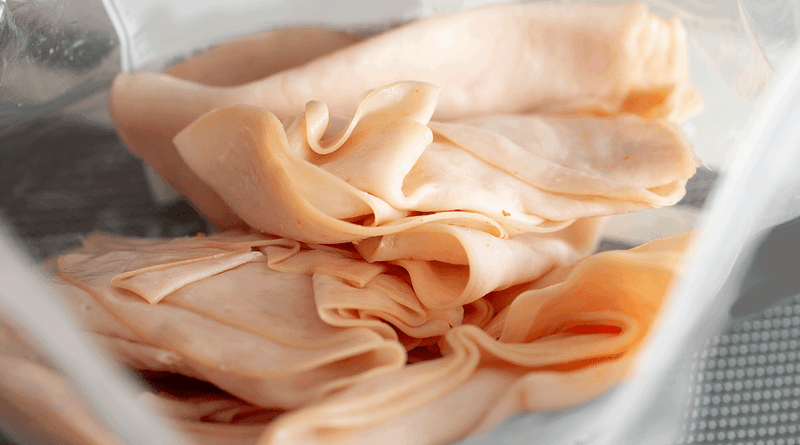
Cold cuts might make quick sandwiches, but they harbor a nasty secret: Listeria monocytogenes. This bacterium thrives in refrigerator temperatures where other pathogens can’t survive.
Pregnant women face particular danger as listeria can cross the placental barrier. Heat deli meats until steaming hot before eating!
10. Bean Sprouts: Bacterial Breeding Grounds
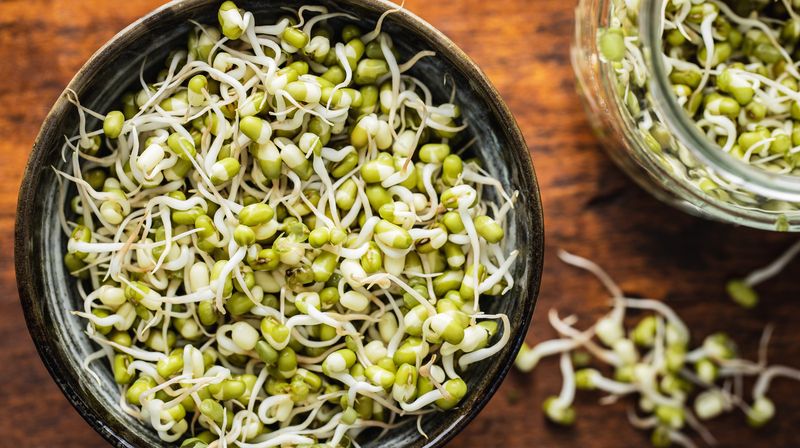
Bean sprouts require warm, humid conditions to grow – exactly what bacteria love too! Their tangled roots create protective pockets where E. coli and salmonella hide from washing.
Cooking kills these pathogens, but many people eat sprouts raw. Skip them entirely if you’re pregnant, elderly, or have a compromised immune system.
11. Raw Milk Cheese: Traditional But Treacherous
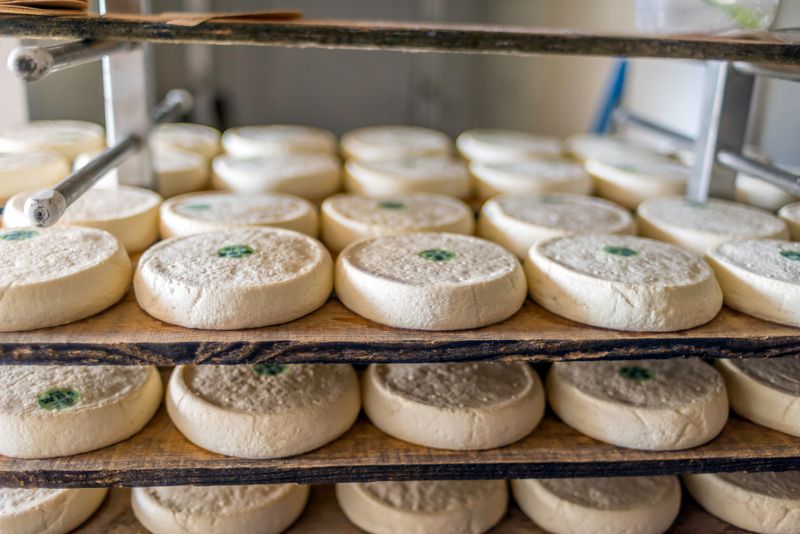
Cheese connoisseurs rave about raw milk varieties, but these traditional delicacies skip a crucial safety step. Without pasteurization, harmful bacteria from the animal may remain in the final product.
Pregnant women, children, and those with weakened immune systems should avoid these artisanal options.
12. Undercooked Beans: Natural Toxin Trouble
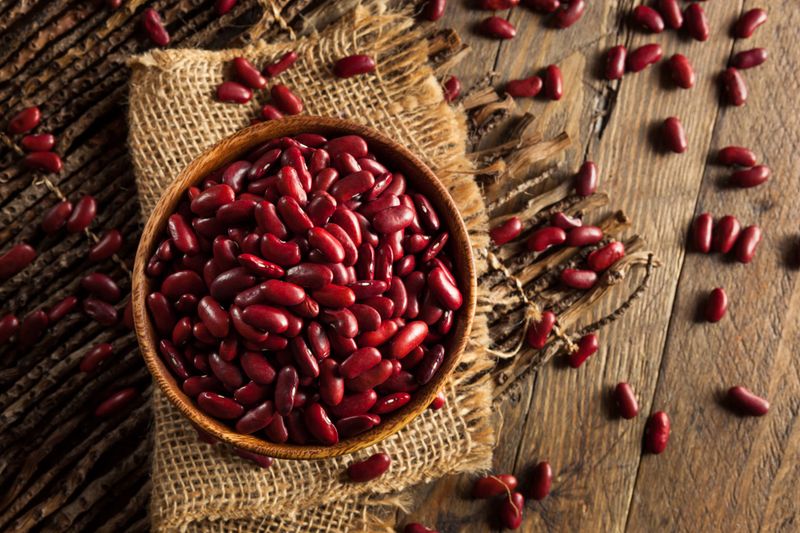
Red kidney beans contain a natural toxin called phytohemagglutinin that can trigger severe gastrointestinal distress. Slow cookers often don’t reach high enough temperatures to destroy this compound.
Always boil kidney beans for at least 10 minutes before adding to recipes. Canned beans undergo proper processing!
13. Oysters: Vibrio Vessels
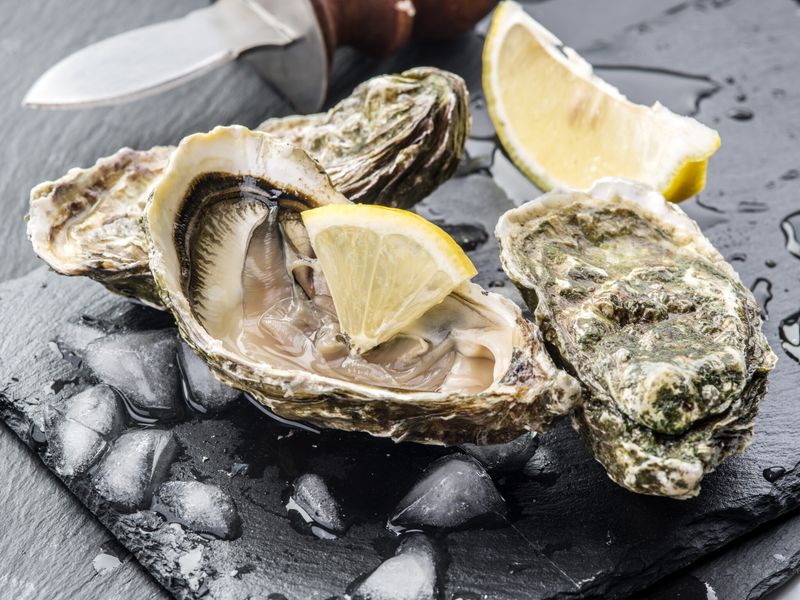
Nothing says luxury like slurping raw oysters – until food poisoning strikes! These briny delicacies filter feed, concentrating bacteria from their environment directly into their flesh.
Vibrio bacteria thrive in warm coastal waters where oysters grow. Cooking destroys these pathogens.
14. Unwashed Avocados: Skin-Deep Danger
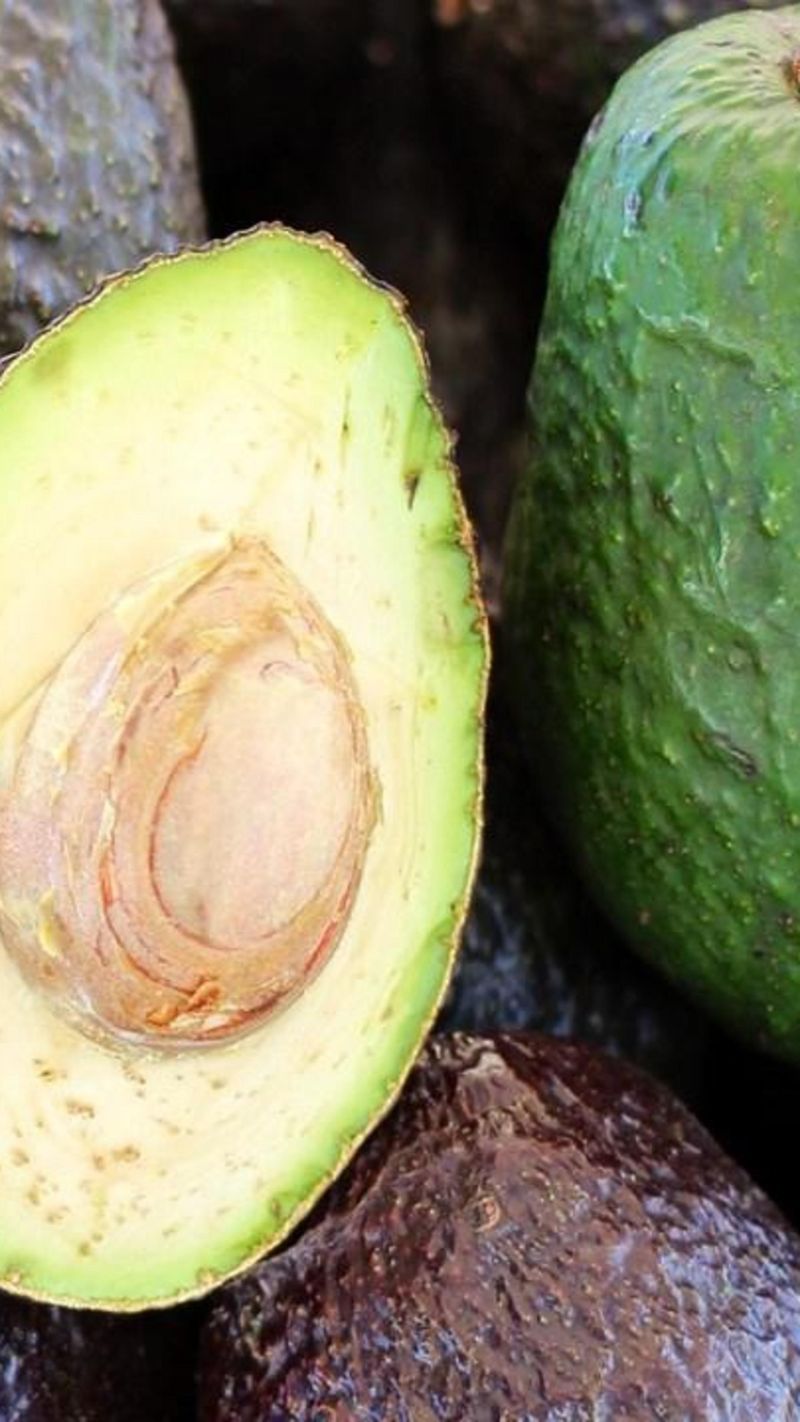
Slicing into an unwashed avocado drags bacteria from the skin straight into the creamy flesh. FDA studies found Listeria monocytogenes on nearly 18% of avocado skins!
Always scrub avocados under running water before cutting. Use a clean knife and cutting board.
15. Leftover Potatoes: Botulism Bombs
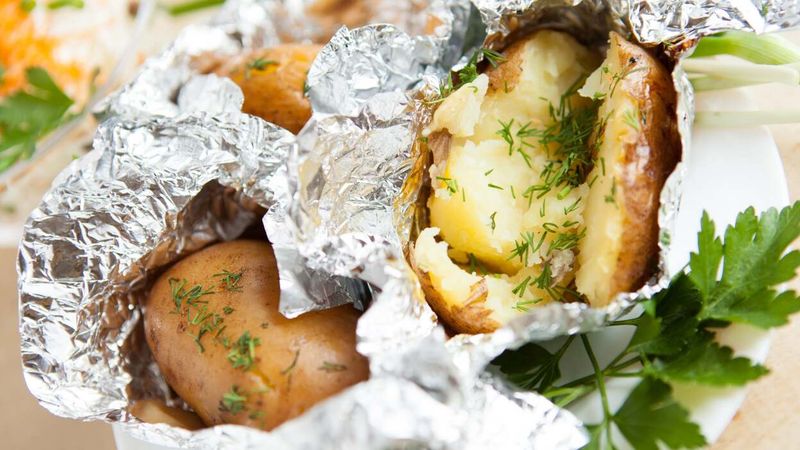
Baked potatoes wrapped in foil create the perfect low-oxygen environment for Clostridium botulinum spores to produce deadly toxins. Room temperature storage only accelerates this dangerous process.
Never store foil-wrapped potatoes at room temperature. Remove foil after baking and refrigerate leftovers within two hours.
16. Tuna: Histamine Hazard
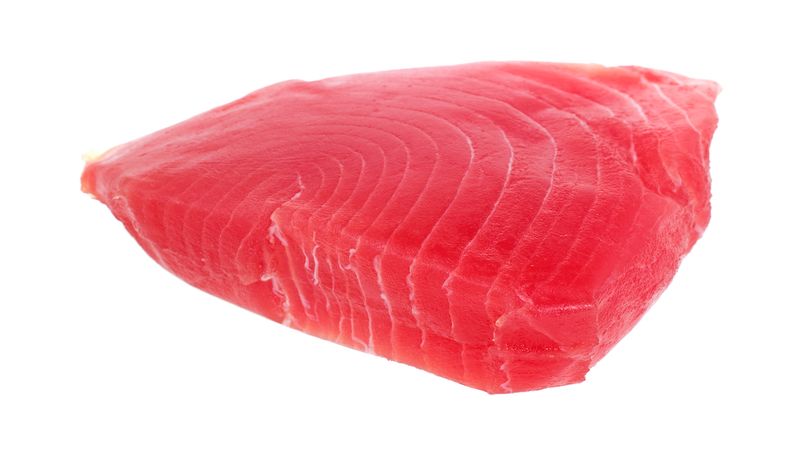
Improperly stored tuna develops scombroid poisoning – not from bacteria directly but from histamine produced as fish spoil. Once formed, this chemical can’t be destroyed by cooking or freezing.
Symptoms mimic severe allergic reactions: flushing, headache, and palpitations. Only buy tuna that’s been properly refrigerated.
17. Honey: Infant Botulism Risk

Golden and delicious, honey seems perfectly natural – but it harbors Clostridium botulinum spores that adult digestive systems neutralize easily.
Babies under 12 months lack this protective gut flora. Even a tiny taste can cause infant botulism, a potentially fatal illness.

